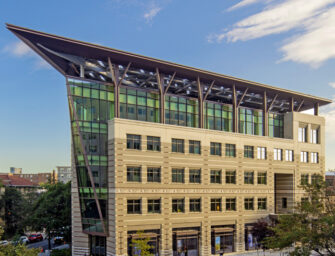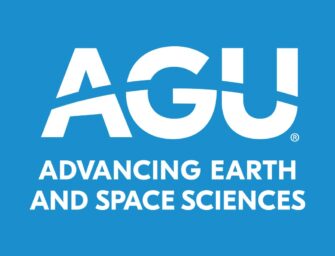AGU Council Meeting and Leadership Orientation Summary, March 2023
It was an intense three days, but we made it!
Each summary of a Council meeting is a bit different. We’ve had songs, poetry, and storytelling. This time, I’m going to frame this wrap-up through the lens of something I do a lot of both personally and professionally: navigating contentious conversations and building trust.
One of the most important things when talking about potentially controversial or difficult topics is finding common ground.
During last week’s Council meeting, we talked about how difficult it can be to build community when you’re seen as an outsider or “different than.” We learned that we don’t always know when we are treating someone like an outsider. Sometimes, we don’t even know who we’re missing.
We also learned about the importance of speaking up when things aren’t right—though it’s okay if you can’t always speak up. Non-targets will often receive less backlash than targets.
A key insight to remember: “Diversity is a property of groups, not individuals.”
Sometimes it feels like we’re all just itching for a fight. We attribute ill-intent to someone’s actions when maybe they made a mistake or were not informed of all the details. How do we get past that instinct to be contentious?
When talking about contentious topics, it’s great to start from our common ground. We did that through our presentations, where we and the Council’s student and early career representatives shared about our section’s and committee’s purpose or how our science was evolving, key topics emerging in our sections and committees, linkages to each other and to AGU’s strategic plan, and our personal opportunities and challenges as we move forward.
Several themes emerged in these presentations: big data and associated opportunities and challenges; cross-, multi-, inter-, and transdisciplinary science; the energy transition and environmental justice; the difficulties of communication; and the importance of DEI.
Why are these commonalities important? Because it demonstrates that we all have more in common than we have differences. When we start from where we align, we can have more effective conversations that lead to action.
We all have things going on. And sometimes, well, “shit happens,” especially when we’re talking about things we are passionate about. How we handle ourselves when this happens says a lot. Do we extend grace? Do we assume good intent unless there is a clear demonstration otherwise?
We learned that the Council has done A LOT over the years, as an entire body as well as smaller parts of it. We talked about the roles of various parts of AGU and how they work together. And we learned how AGU has evolved over time: we’ve become more global; we’ve become more agile; we’ve become less “top down” in decision-making.
A key takeaway for us all was this quote from President John F. Kennedy: “Learning and leadership are indispensable to each other.”
We started the second day reflecting a bit on what we did the first day. We talked about the importance of breaking down barriers while also maintaining our disciplinary “homes” and sense of belonging.
We learned about the Safe AGU and the AGU Ethics policies and processes, and how these are being implemented and reviewed and updated.
We learned and asked questions about the position statement process, and what position statements are up for review, comment, or approval.
We spent some time talking about “Science and Activism” and what AGU’s role should be. This left us with more questions than answers (does activism have to be disruptive? What’s the difference between advocacy and activism?), but that’s part of the role of the Council.
Another key takeaway: “AGU is a vessel—it provides a place for the community to come together.”
Our Council’s role is to generate ideas for aligning and strengthening AGU activities as science evolves.
We learned about how AGU is developing an Ethical Framework for Climate Intervention. There was some skepticism expressed about this, but this led to a lot of good discussion about need, process and purpose. There was a lot of passion in this discussion.
We had some great discussions about our meetings portfolio and strategy, including how it can better serve the mission and goals of AGU as outlined by the strategic plan.
We also received an update on current research on membership—early days still, but we’re trying to better understand who a member is, what value they get, and why they renew or don’t renew. We received updates on AGU honors and publications, then had time for deeper conversations on these topics.
AGU community members are more than our science. When we bring our whole selves to these conversations, we all have better outcomes. We need to spend as much time listening as speaking. We need to provide space for grace.
My biggest takeaway is that we are passionate, dedicated people who care deeply about AGU and our science. We want things done right—inclusive, accessible, and just. And we are ALL AGU.
—Denise J. Hills, Chair, Position Statement Committee



There are no comments
Add yours